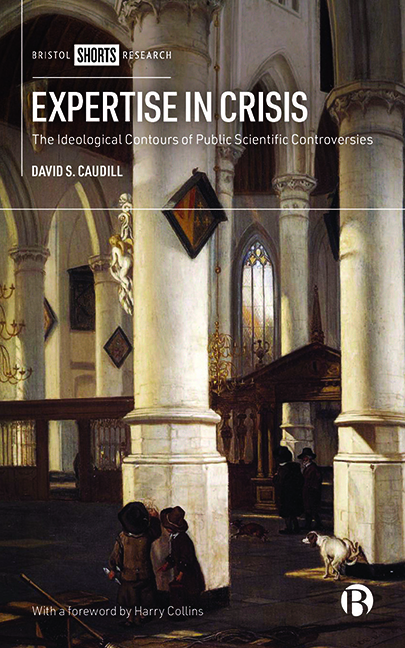Book contents
- Frontmatter
- Dedication
- Contents
- About the Author
- Acknowledgments
- Foreword
- Preface
- Introduction
- One What Caused, and How Do We Fix, Our Crisis?
- Two Worldviews as “Religious” Frameworks
- Three The Quasi-Religious Aspect of the Crisis
- Four Belief as a Form of Expertise
- Five Communicating across Worldviews
- Conclusion
- Notes
- References
- Index
One - What Caused, and How Do We Fix, Our Crisis?
Published online by Cambridge University Press: 18 January 2024
- Frontmatter
- Dedication
- Contents
- About the Author
- Acknowledgments
- Foreword
- Preface
- Introduction
- One What Caused, and How Do We Fix, Our Crisis?
- Two Worldviews as “Religious” Frameworks
- Three The Quasi-Religious Aspect of the Crisis
- Four Belief as a Form of Expertise
- Five Communicating across Worldviews
- Conclusion
- Notes
- References
- Index
Summary
The complexity of the crisis of expertise
In the culture wars generally, there is a tendency to oversimplify; for example, some critics often talk of those who live in an “alternate reality” as if they— the critics— live in the “real” world. As to some issues, this may be justified. Stories of those who believe their parents have been brainwashed by Facebook posts claiming election fraud (or a grand left-wing conspiracy), or who cannot believe their friends supported an “authoritarian” president who divided the country, are common. However, many of the differences between the two sides in the culture wars reflect different values and visions for the nation. As sociologist Nissim Mizrachi explains, with respect to the working-class voters in Israel who supported Netanyahu (the parallels with Trump voters “are impossible to miss”): “The problem [is not that they were] confused about what was best for them. They weren’t suffering from … ‘false consciousness’. … [They] were consciously spurning liberalism for a reason: what they see as the endgame of the liberal worldview is not a world they wish to inhabit.”
One need only think of the abortion rights controversy, immigration policies, or the supposed attacks by the Left on religious freedom or gun rights to recognize that the division in the culture wars is not simply about misinformation from unreliable Internet sources; it is about values, identities, and foundational commitments to a way of life. Moreover, those on the Right do not have a monopoly on foundational commitments—both the Left and the Right have a moralized anchor “around which to understand the world”:
The delusional claim not to have any ideology … is almost always a camouflage. Just as in the joke about one fish saying to the other “what’s water?” … the claim not to have any conscious ideological positions at all signifies at best that [one] has simply absorbed the dominant ideology.
One can certainly argue that there is no moral equivalency between the opposing ideologies in the culture wars and that the views of one side will lead to superior outcomes in terms of fairness in opportunities for success, racial and gender equality, or helping those in need.
- Type
- Chapter
- Information
- Expertise in CrisisThe Ideological Contours of Public Scientific Controversies, pp. 20 - 35Publisher: Bristol University PressPrint publication year: 2023

